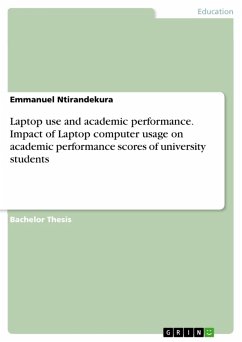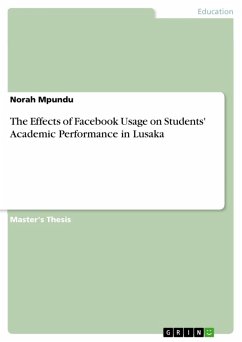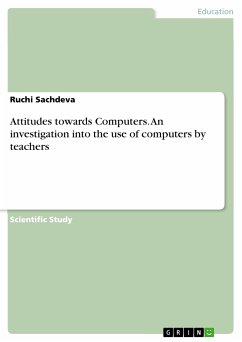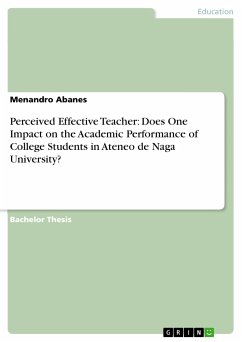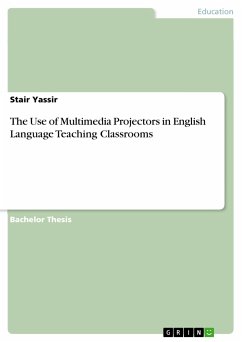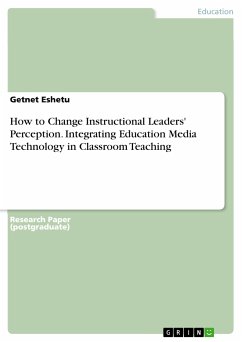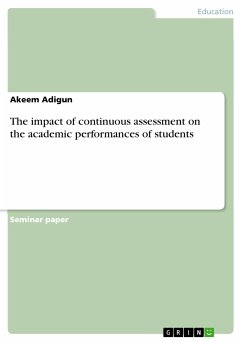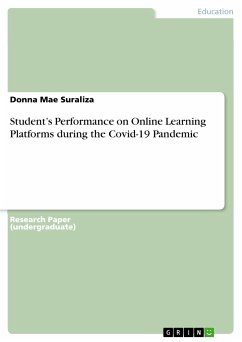Bachelor Thesis from the year 2017 in the subject Pedagogy - Media Pedagogy, grade: 2.9, University of Rwanda (University of Rwanda/College of Business and Economics), course: Applied Statistics, language: English, abstract: As technology use continues to rise, especially among young individuals, there are concerns that excessive use of technology especially laptop computer may impact academic performance scores. Researchers have started to investigate the possible negative effects of technology use on college academic performance, but the results have been mixed. The objective of this study was to test at what extent does laptop usage affect student's academic performance for undergraduate's students in University of Rwanda, Huye campus-college of Business and Economics. The total sample size was 235 students in which 91 students, own laptop computer and 144 did not own laptop computer, all students were from year one, two and year three applied statistics based on multistage sampling design. Self-administered questionnaires were used to obtain data to be used in analysis, asking questions regarding to the ownership of laptop, type of use, laptop literacy and internet use frequency. Two types of hypothesis were used to test for any relationship between academic performance and laptop use, hypothesis one set as: "There are no evidences for the differences exist in performance scores of students who use computer and non-computer user irrespective the purpose of use" and hypothesis two was: "There is no Statistical difference in average marks of students who own laptop computer and students who don't have computer". To test the plausibility of these statement the study employed both binary logistics regression to see who is likely to perform well and two independent sample t-test sought to reveal exact difference between categories of laptop use on which was categorized students into low laptop users and higher laptop users. The study results revealed, that all hypothesis has been rejected from all tests used in the analysis, the two independent sample t-test rejected the 2 hypotheses at 5% level of significance (0.041; 0,001<0.05) respectively. The binary logistics regression results revealed that being a high laptop user was associated with increased in likelihood of being high performing well (OR=7.327, P-value<0.05), and being a laptop owner was associated with increased in likelihood of being high performing well (OR=0.151, Pvalue<0.05), By holding other factor constant, laptop owner has probability of 13.1% for increase in odds of performing well compared to none laptop owner.
Dieser Download kann aus rechtlichen Gründen nur mit Rechnungsadresse in A, B, BG, CY, CZ, D, DK, EW, E, FIN, F, GR, HR, H, IRL, I, LT, L, LR, M, NL, PL, P, R, S, SLO, SK ausgeliefert werden.
Hinweis: Dieser Artikel kann nur an eine deutsche Lieferadresse ausgeliefert werden.

